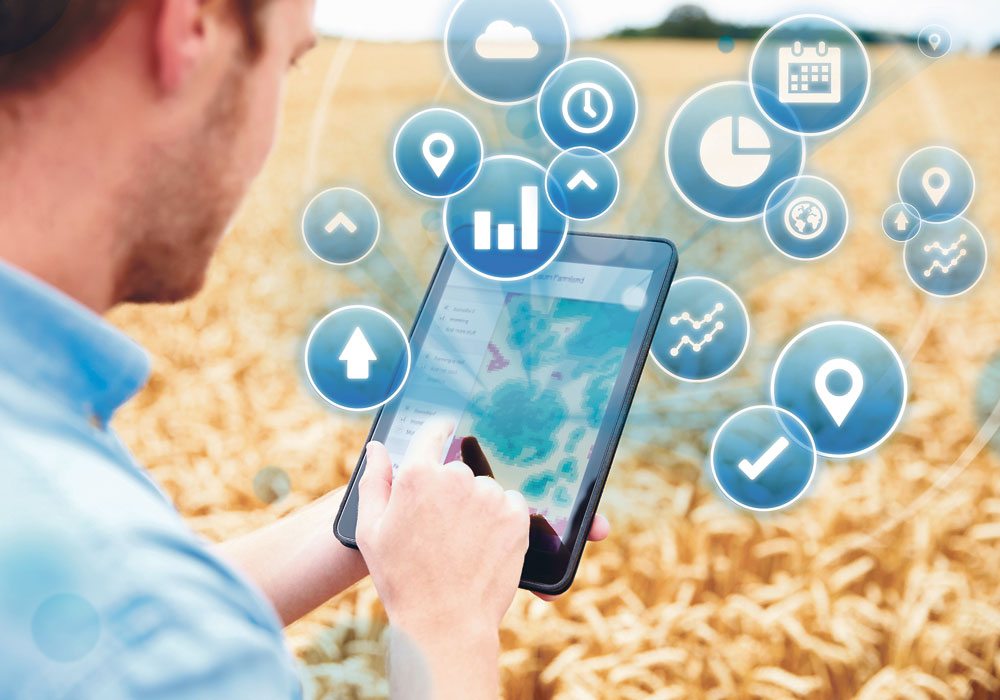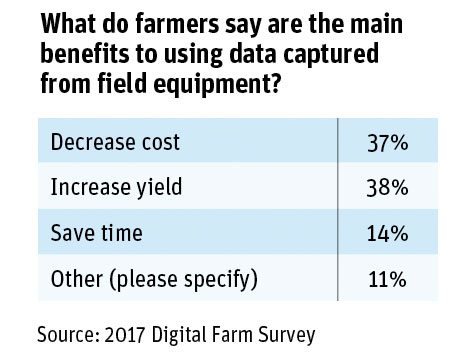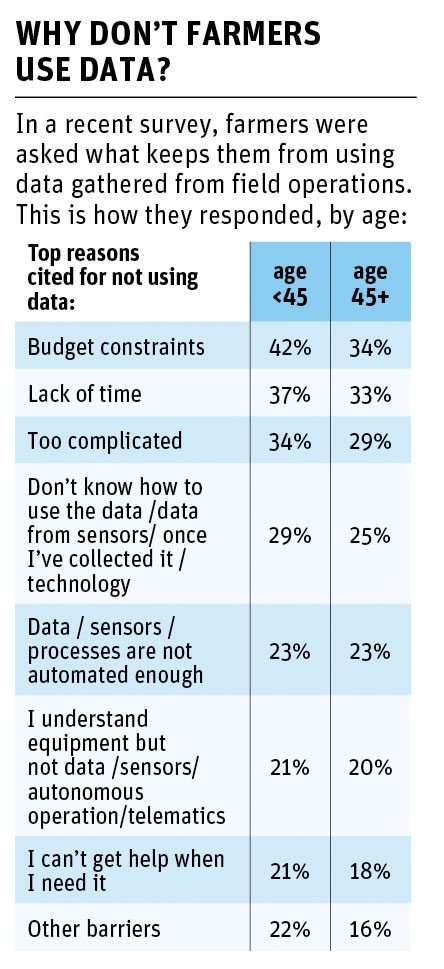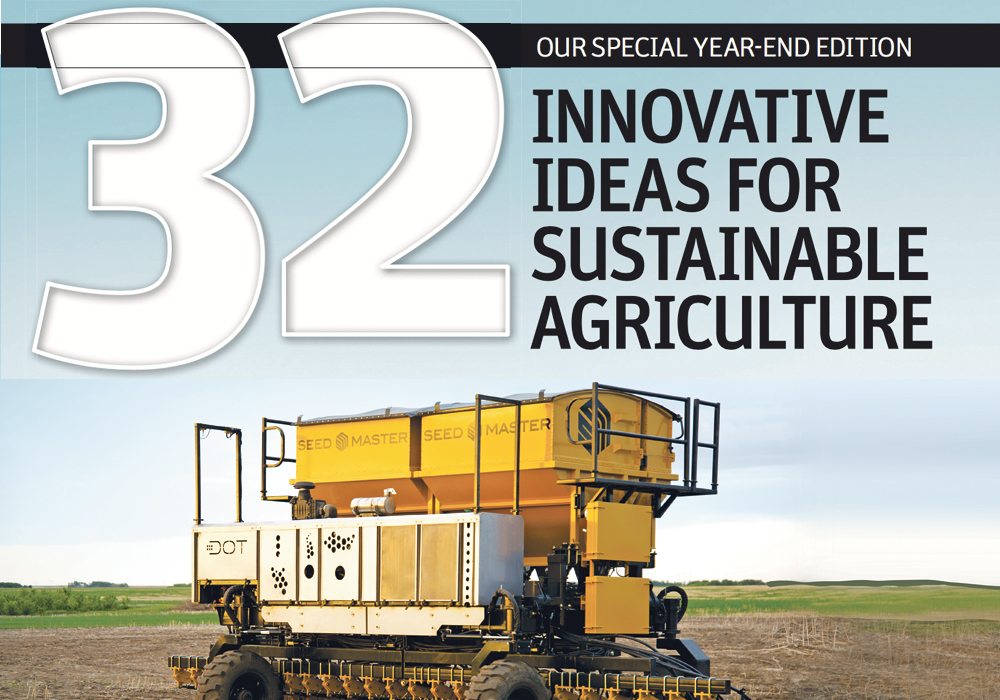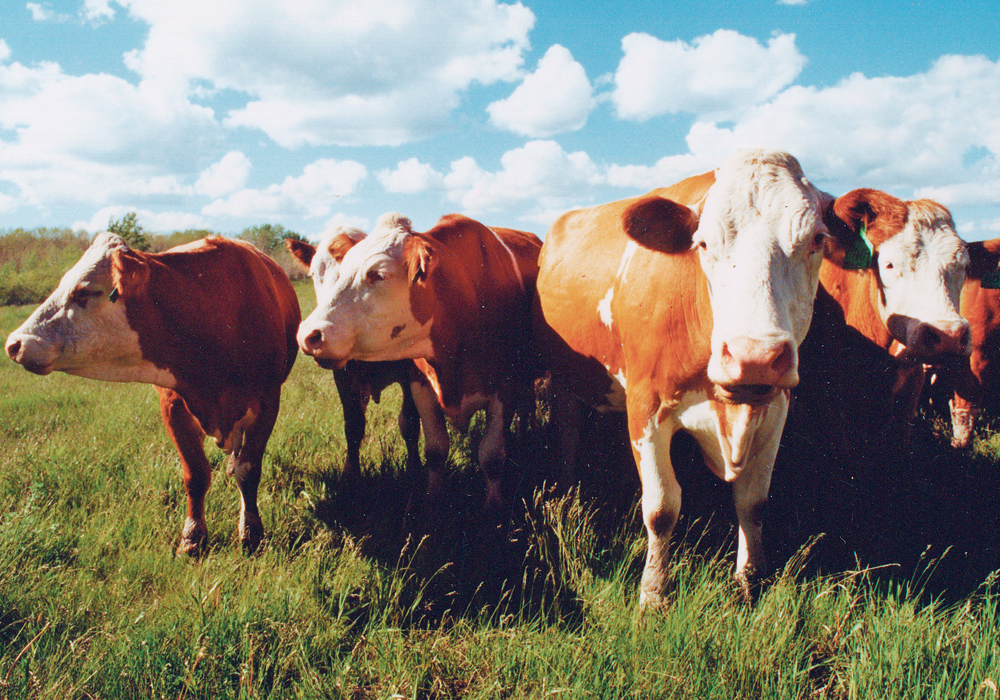What has become known to many as “big data” has promised to transform farming by optimizing crop inputs and yield.
Yet a recent survey by Glacier FarmMedia shows farmers are slow with the uptake.
The survey of 428 prairie farmers conducted this fall indicates that half the field data collected is not downloaded or expected to be used in future planning. Even farmers with clear access to their data collection still expressed considerable confusion over how to put that information to use, or how to apply a specific technology to help their specific farm.
Read Also

Farming Smarter receives financial boost from Alberta government for potato research
Farming Smarter near Lethbridge got a boost to its research equipment, thanks to the Alberta government’s increase in funding for research associations.
Only six percent of farmers rated data technology as a high investment priority compared to other uses of time and capital. For all the attention given big data in recent years, there was a clear lack of enthusiasm for investing in the technology. Most farmers say they recognize the benefits of farming the data, but do not see a strong enough return on investment to justify the cost. Budget constraints were cited as the main barrier.
Other stories in The 2017 Innovation Issue:
- New genetic tools offer way to restore cattle vigour
- Technology can help breed better cattle
- Biotech companies prospecting for microscopic gold mines
- Bee buzzes critical to calculating crop pollination
- Fungus could aid plant growth, reclaim oil sites
- Cracking the megapest genetic code
- Genetic mapping vs. genome sequencing
- French robot prowls the chicken coop so you don’t have to
- New laser technology proves successful for B.C. orchard
- High-tech deterrent devices protect crops from … intruding elephants?
- Diamondback moths focus of Cornell study
- VIDEO: Print your own parts?
- Bees may be serving up humanity’s next big food … and it isn’t honey
- Big doubts about big data
- The little plane that did
- Soil mapping soon to be more usable
- Managing fields could soon move to plant level
- GM pollen: it gets around
- Autonomous vehicles not on the radar for most farmers
- Farm wi-fi connectivity opens new world of possibilities
- Nanotechnology to alter animal health, food systems
- As big data comes to the farm, are policy makers keeping up?
- Connecting the DOTs
- Hands-free field test
- Researcher understands farmer doubts about hands-free farming
- The trouble with telematics
- Sensor sensibility
- The discovery that could shake up the beer industry
- Grow your own clothes
- Blockchain technology offers food safety, traceability and more
- Supercluster makes big innovation pitch
- Quicker, cheaper biofuel production in the works
- Alternatives to livestock antibiotics are difficult to assess
- A revolution is coming
As well, a large percentage of farmers view data technology as too complicated. Nearly half the respondents chose as barriers to adoption factors such as “too complicated” or “don’t know how to use the data” or “I understand equipment but not data” or “I can’t get help when I need it.”
Surprisingly, farmers younger than 45 are more likely than older farmers to say that the major barriers are knowledge or support issues. Compared to the overall survey group, more farmers in the higher income group are further along in testing the technologies or have fully adopted digital technology. Although they are less likely to cite financial constraints, they are similar to the overall group in their lack of comfort with understanding digital technologies.
According to the survey, 10 percent of respondents are now using data technology, 20 percent say they are testing data technology and 30 percent say they will be ready in two years. The remaining 40 percent of farmers are not committed. The report summary states that simply promoting the benefits of big data in managing their farm is not enough to cause them to buy in.




